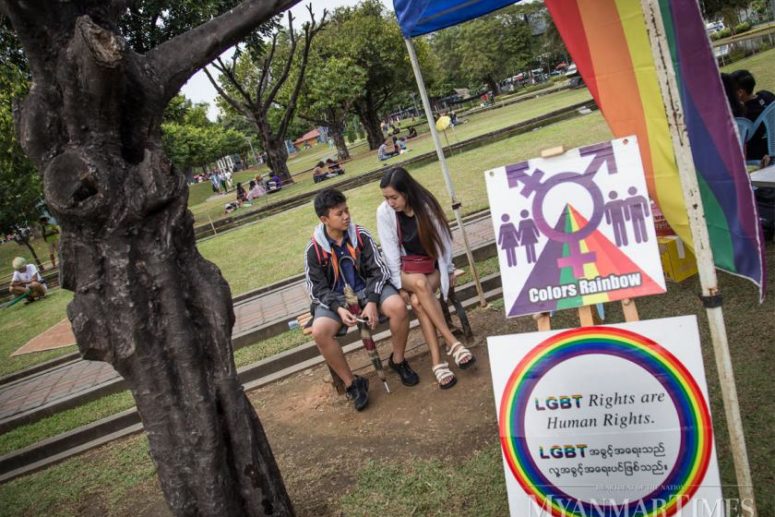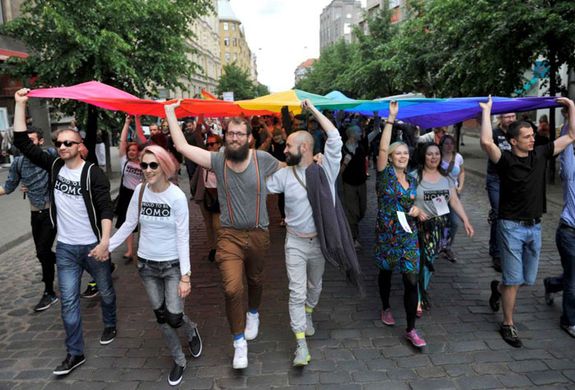This articles first appeared in Myanmar Times
Employers and companies in Myanmar are encouraged to fly the rainbow flag on May 17 to support equality in the country.
In an open letter, the Myanmar Centre for Responsible Business and Myanmar NGO Colours Rainbow are jointly urging companies in the country to join the hundreds of organisations across the world who will stand up for lesbian, gay, bisexual and transgender (LGBT) equality by displaying a rainbow flag.
Last year, Colors Rainbow, a local organisation working on LGBT rights, published baseline assessments of the situation of LGBT people at workplaces in Yangon and Mandalay. This identified the societal discrimination faced by LGBT people in Myanmar, from school onwards, and the importance of – and opportunity for – companies putting their anti-discrimination policies into practice. It also showed that many misconceptions exist in Myanmar about homosexuality.
In September 2017, the United Nation’s Human Rights Office, in its Free and Equal campaign, published five “Standards of conduct for business” to support the business community in tackling discrimination against lesbian, gay, bi, trans and intersex people, in line with the UN Global Impact and the UN Guiding Principles on Business and Human Rights.
“We are confident that with your help, we will achieve a strong signal of support for equality.
“Since MCRB’s invitation in its recent newsletter to companies and other organisations to join us, over twenty companies and other organisations, both foreign and Myanmar, have already contacted us to take part. We hope that you and others will join them,” said Vicky Bowman, MCRB director and Khin Ma Ma Aye, Colours Rainbow executive director, in the letter.
The two NGOs said companies can also show solidarity by putting on a IDAHOT 2019 Myanmar rainbow frame on the company Facebook page, talk about diversity and LGBT rights, and signing on to support LGBT equality.
Which are the UN’s five standards of conduct for business which are designed to tackle discrimination against LGBTI people?
Respect human rights: Businesses should develop policies, exercise due diligence, and remediate adverse impacts to ensure they respect human rights of LGBTI people. Businesses should also establish mechanisms to monitor and communicate about their compliance with human rights standards.
Eliminate discrimination: Businesses should ensure that there is no discrimination in their recruitment, employment, working conditions, benefits, respect for privacy, or treatment of harassment.
Provide support: Businesses should provide a positive, affirmative environment so that LGBTI employees can work with dignity and without stigma.
Prevent other human rights violations: Businesses should not discriminate against LGBTI suppliers, distributors or customers, and should use their leverage to prevent discrimination and related abuses by their business partners.
Act in the public sphere: Businesses are encouraged to contribute to stopping human rights abuses in the countries in which they operate. In doing so, they should consult with local communities to identify steps they might take — including public advocacy, collective action, social dialogue, support for LGBTI organisations, and challenging abusive government actions.
The full letter can be found here.



